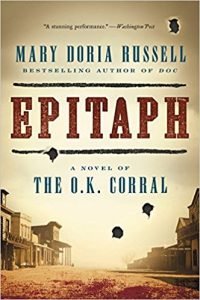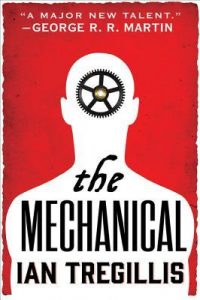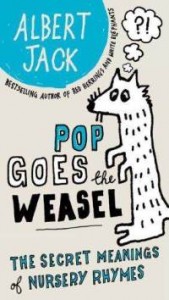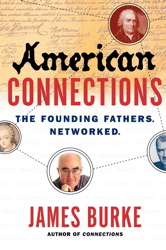 All those stories about cowboys, lawmen, and outlaws? Most of them occurred here, in the American Southwest. The people behind them have become legends, glamorized by Hollywood, stretched and exaggerated until they are hardly recognizable. Good guys never do no wrong and the bad guys are truly evil. Life is never so black and white and Mary Doria Russell tries to put some human perspective on one of the most famous events of the old West, the gunfight at the O.K. Corral.
All those stories about cowboys, lawmen, and outlaws? Most of them occurred here, in the American Southwest. The people behind them have become legends, glamorized by Hollywood, stretched and exaggerated until they are hardly recognizable. Good guys never do no wrong and the bad guys are truly evil. Life is never so black and white and Mary Doria Russell tries to put some human perspective on one of the most famous events of the old West, the gunfight at the O.K. Corral.
Once the smoke had settled, three men had been killed. The Earp brothers, and their friend Doc Holliday, at most suffered relatively superficial wounds. However, the controversy over who drew first, whether the dead men had even been armed, and the bad blood between the Earps and the so-called Cow Boys that boiled over led to the shooting of two of the Earps, one who died, and a vendetta ride by Wyatt Earp that cemented his place in American history.
Epitaph is a novelization of the history of the gunfight. It begins in a seemingly unlikely place, with the childhood of Josie Marcus, who became Wyatt Earp’s wife and outlived them all. If there is a common thread that pulls the narrative together, it is Josie’s, but Russell does an excellent job of juggling a huge cast of characters and, more importantly, providing them with a voice. Even the most despicable of the so-called villains has his time on the page. Events are given view through the eyes of characters not directly involved in the gunfight, such as the wives of the various Earp brothers. Russell doesn’t lay blame for the gunfight at the foot of any one character. Rather, she tries to provide context for the events as they unfold and maybe some rationale for those events.
Being a novelization, Russell certainly takes liberties. There are quiet moments where she fills in the blanks. There are events where we don’t know enough to be certain what really happened — Russell adds her own details. And there are contradictory accounts, for example, how Josie originally left her family and found herself in Tombstone, Arizona. Russell chooses one of those stories, the one told by Josie herself, and uses it as if it were canon. One of the Earp brothers, Warren, never makes an appearance. I’m not enough of a historian to really judge the historical accuracy of the events as Russell conveys them. However, it seems she has a solid skeleton based on history and her details add the flesh that lead to a great story.
Maybe I learned something from this book about the history of the American Southwest. Certainly, names and places that dot our collective consciousness are given meaning: Doc Holliday, Albuquerque, Tombstone, Wyatt Earp. And new details arise that pique my interest, such as the fact that Earp spent some time in Idaho, in Eagle City. Other characters emerge as important players in the drama of Tombstone, including the other Earp brothers and John Behan, a would-be political mover and shaker whose life is very much intertwined with those of Wyatt and Josie.
Even though Russell may have taken liberties with some of the details, the story moves along and keeps you engaged. I’m keen to read more about the men and women of the American Southwest and that is as great a testament to a book like Epitaph as I can make.


